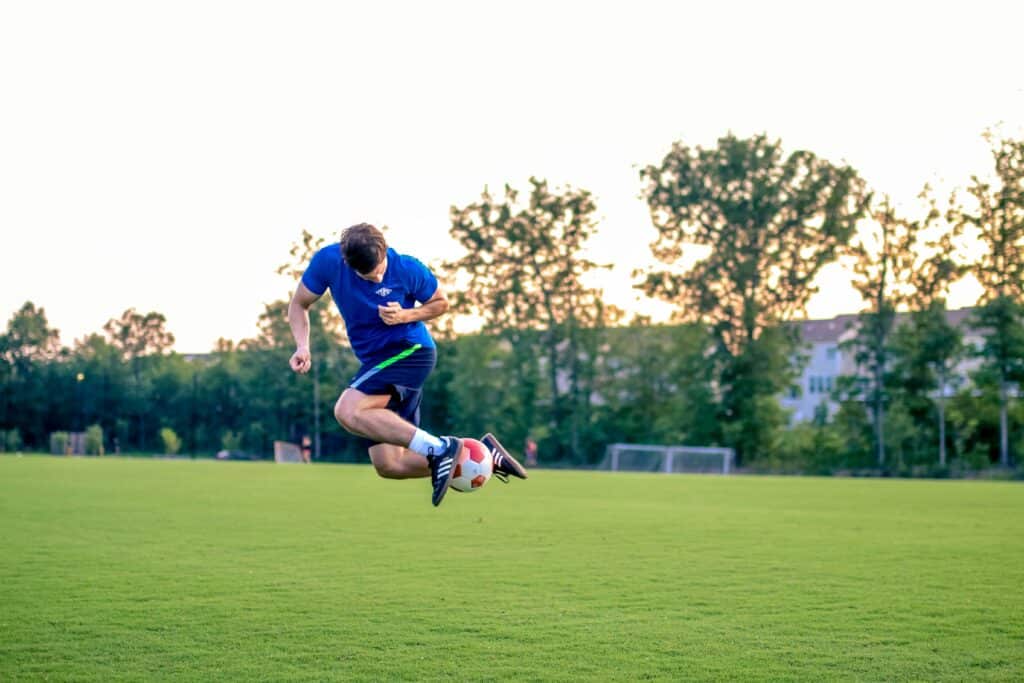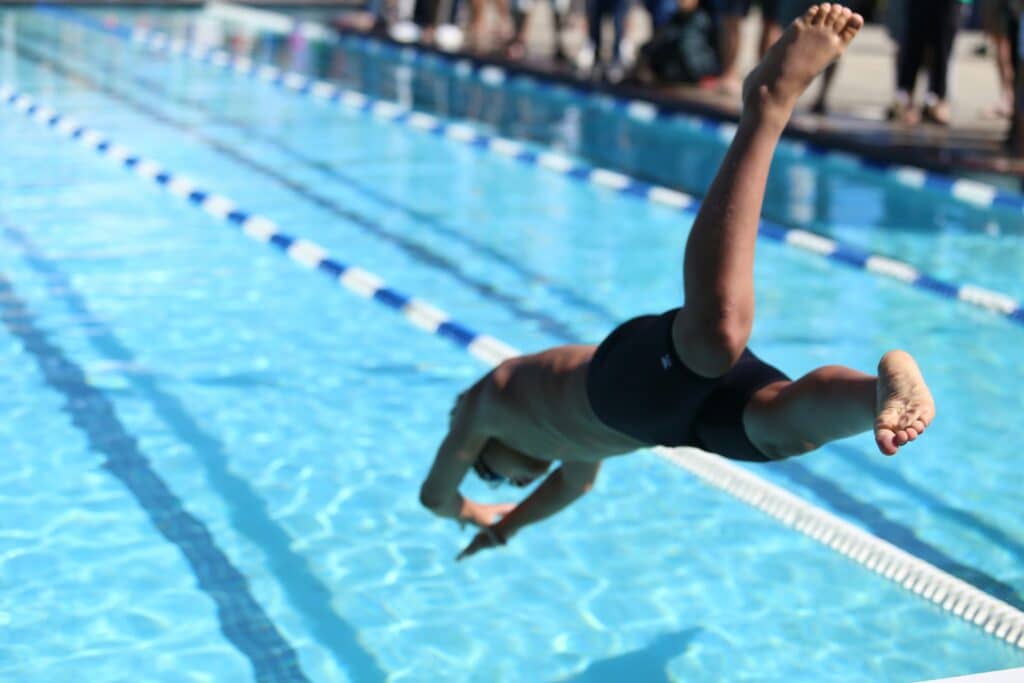
Shabbat is the day of rest. It has many rules. It has even more suggestions.
Some of these rules are straightforward – don’t tie a knot, don’t write or erase, don’t start a fire. Others? Not so much.
Sports inhabit that gray, nebulous region. Whether you can play sports on Shabbat has been discussed by rabbis for centuries. The answer? It depends.

Whether you can play a sport on Shabbat depends on a variety of factors. Let’s unpack the debates surrounding sports on Shabbat and what makes playing a game allowed under halacha (Jewish law).
Sports on Shabbat: The right questions
What are your intentions?
Before heading out to the field on Shabbat, ask yourself these questions: Are you playing purely for fun? Are you someone who finds joy in aerobic exercise? Does participating in athletics relax you?
If you answered “yes” to all three, then you have a stronger case to play. The ethos of Shabbat is withdrawing from the stress, drama, and distractions of normal life to focus on the spiritual purpose of serving God through Torah and mitzvot.
“Guarding your body” is a mitzvah, and in the book of Deuteronomy it is spelled out to “guard yourself and guard your soul very carefully.” In these ways, playing sports on Shabbat is not inherently forbidden and even possibly encouraged.

If exercising and playing sports bring you happiness, then one could argue that participating enhances your celebration of the weekly holiday.
“There are two different big ideas that we think about in terms of what we do on Shabbat,” explained Rabbi Josh Warshawsky, the rabbi of Congregation Agudas Achim, a conservative synagogue in Columbus, Ohio. “The first thing is oneg, which means joy or celebration. We’re supposed to do things on Shabbat that make us feel good, that make us feel like we’re in a celebratory and revelatory state, that make us feel connected to God, our community, the world around us. For people who are into sports, sports generally fall into that category.”
But what if you hate exercising?
If you dread going to the gym, then running around the neighborhood probably won’t be relaxing and would be antithetical to the ideals of oneg Shabbat. Pushing yourself for the sake of competition, with others or yourself, is also problematic for oneg Shabbat.
“A sport like running, as long as you’re not carrying something in your pocket or listening to music while you run, then go ahead, run, as long as you’re not trying to be competitive,” Rabbi Warshawsky explained. “Competitiveness changes it from a joyful thing to something that is more work-like. So, if you’re playing basketball, maybe don’t keep score, or don’t keep score in a way that would make you play aggressively.”
Fences around fences
This is where the other big idea of Shabbat must-dos shows itself.
The 39 Melachot are the 39 general categories of work that are not allowed on Shabbat. They are the backbone of what we understand to be permitted on Shabbat.
This idea of “work” is why Orthodox professional athletes have struggled over what to do on Shabbat. In many leagues, it is not an option to sit out a game every week. Minor league pitcher Jacob Steinmetz makes it a point to try and avoid playing on Shabbat as much as possible, though he will if he must. Ryan Turell, who previously played for the NBA G League before joining the Israeli Basketball Premier League, plays on Shabbat, but like Steinmetz, only if he can walk from his hotel to the stadium.
Nowhere in the Torah does it say you can’t play sports on the Sabbath. But even though it doesn’t explicitly outlaw athletics, such activities can proliferate impermissible actions.
We are humans, and humans are prolific mistake-makers. Sure, you can fight those forces, but nothing in human nature suggests perfection.
To protect ourselves from ourselves, we put fences around fences, Rabbi Warshawsky explained. To do otherwise is to put faith in human nature.
“The most stringent of authorities lack a lot of trust in human behavior, and they have to put these fences around fences, because we can’t trust human beings left to themselves,” he said.
This practice saves you from being put in a position where you could be compelled to violate the rules. It is risk management to the highest degree, but such is the sacred nature of the Torah.

It also depends who you ask. Stricter authorities prefer more fences, and more lenient authorities accept fewer. To some, understanding the risk makes entering the behavior OK, so long as your intention is not to break Shabbat. To others, any amount of unnecessary risk in breaking Shabbat is too far.
Mind the Equipment
Equipment muddies the waters.
On Shabbat, it is forbidden to carry objects more than six feet within a “public domain” and forbidden to carry objects from a “private domain” to a “public” one. If you are inside an eruv (a wired off area that extends private areas into the public), then you can carry items, assuming they are allowed and needed on the Sabbath. This can make playing some sports on Shabbat more difficult.
Another wrinkle with equipment is the urge to fix if something breaks. For example, a basketball could lose air as you use it. You might feel compelled to inflate the ball to return it to the ideal standard, but that would break Shabbat. In a similar vein, if you’re playing baseball and the ball gets stuck in a tree, you might feel compelled to shake or climb the tree to retrieve it. But you would almost certainly break a branch or knock off a leaf down in the process, which would break Shabbat.

So, have extra equipment on hand, accept playing with deflated or broken equipment, or know that the game ends if the equipment fails.
“You want to know where your line is before you get started – if the ball goes in the tree, then the game’s over,” Rabbi Warshawsky advised. “You have to be very clear on those rules that we establish for ourselves so we don’t cross over boundaries within Jewish law.”
Mind the Ground
Swinging a golf club is not specifically unkosher on Shabbat. But it could lead to unkosher outcomes.
You can’t move the earth on Shabbat. That makes adjusting the grass for your next golf shot an issue. Hitting the ball into a tree and disrupting branches is another violation. You must be very careful with every swing, because you can’t make any divots in the dirt on Shabbat. And definitely never land in a bunker – good luck escaping without unsettling the sand.

Golf is virtually impossible to pull off on Shabbat. Soccer shares some similar roadblocks, though not as many. But what about a putting session in your office into a coffee cup, or passing a ball calmly in your backyard with a friend or family? Your odds of breaking the cup and making yourself want to fix it or affecting the earth with some two-touch passing are low but non-zero. Still, these are the risks involved.
Tread Carefully
When it comes to sports on Shabbat, there is no one size fits all blueprint. To engage in sports or exercise in an acceptable manner on the Sabbath, it is crucial to understand your personal intentions, the 39 Melachot, and how you will react if confronted with a questionable situation.
“Much of this is in the eye of the beholder,” Rabbi Warshawky said. “This is why more strict rabbinic authorities put a fence around some athletic activities. We don’t necessarily trust the eye of the beholder. But if you feel like you know yourself and this run or sport is going to be a benefit to you and not a burden, then by all means, give it a go.”


